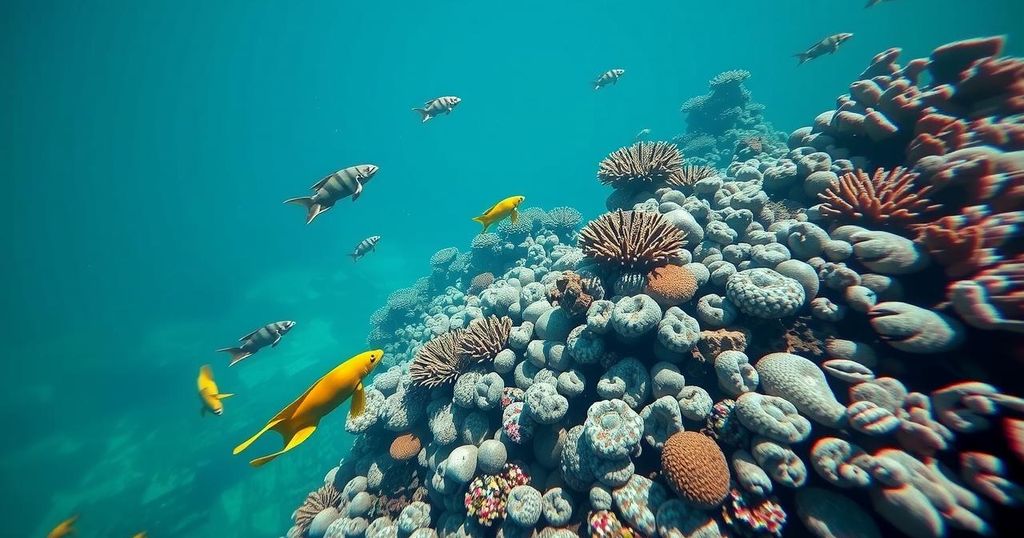The United Nations and scientists have urgently requested increased funding to preserve coral reefs threatened by extinction, as research reveals that 77% of the world’s reefs are suffering from bleaching due to climate change, marking the fourth mass coral bleaching globally.
In a pressing appeal, the United Nations, along with scientists and governmental representatives, convened on Wednesday to call for escalated financial support aimed at the protection of coral reefs, which are facing an existential threat. Recent studies indicate that a staggering 77% of the globe’s coral reefs are adversely affected by bleaching, primarily attributed to rising ocean temperatures resulting from anthropogenic climate change. This phenomenon marks the alarming occurrence of the fourth mass coral bleaching event globally, impacting both the Northern and Southern Hemispheres, as reported by the United Nations Capital Development Fund.
Coral reefs are vital marine ecosystems that support a diverse array of marine life and provide critical services to human communities, including coastal protection, tourism, and fisheries. However, these ecosystems are under unprecedented stress due to climate change, specifically the increase in sea surface temperatures that leads to coral bleaching. This process occurs when corals expel the symbiotic algae living within their tissues, resulting in a loss of color and, ultimately, their vitality. The increasing frequency of mass bleaching events poses a severe risk to the survival of coral reefs worldwide, necessitating urgent action and funding from global leaders.
In conclusion, the occurrence of the fourth mass coral bleaching event underscores an urgent call to action from the international community to secure funding and implement measures to safeguard coral reefs. The alarming statistic that 77% of the world’s reefs are currently experiencing bleaching highlights the critical state of these ecosystems and the imperative to combat the underlying causes of climate change.
Original Source: www.washingtonpost.com






